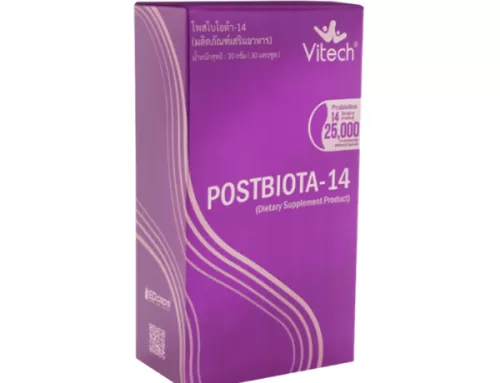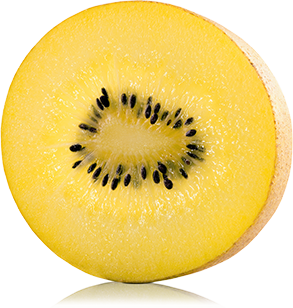F.prau and COVID are linked in a number of ways
As we noted in our earlier blog on the gut microbiome and COVID infection, dysbiosis of the gut microbiome, including reduced numbers of Faecalibacterium prausnitzii (F. prau), has been observed in patients with COVID-19. In particular, reduced levels of F. prau was associated with increased duration and severity of COVID-19 infection symptoms (Yeoh et al., 2021).
It is well-known that F. prau, as an important beneficial gut bacterium, has anti-inflammatory properties and affects the immune system, but how is it linked to COVID and why might those who suffer more and for longer from COVID-19 have lower levels of F. prau?
Several mechanisms have been proposed to explain how F. prau contributes to immunity. These are:
- enhancing the gut barrier – part of that critical first line of defence against invaders;
- directly inducing anti-inflammatory cytokine secretion;
- directly inhibiting the secretion of pro-inflammatory cytokines; and,
- producing anti-inflammatory/immunomodulatory metabolites (He, Zhao, & Li, 2021).
Anti-inflammatory and immunomodulatory effects of F. Prau

One of the most severe symptoms/pathologies of COVID-19 is cytokine storm, characterised by huge increases in the levels of pro-inflammatory cytokines such as IL-6, INF-γ, and TNFα.
This hyper-inflammation is associated with poor disease outcomes for COVID-19 infected patients and is presently treated with immunosuppressant medication such as the corticosteroid dexamethasone (K et al., 2021). It has been proposed that commensal (friendly) bacteria with anti-inflammatory and immunomodulatory capabilities, such as F. prau, could potentially down-regulate the cytokine response, to decrease the harmful effects of inflammation while maintaining a positive immune response (Baindara et al., 2021). Therefore, high levels of F. prau may contribute to a reduced cytokine storm.
F. prau can decrease pro-inflammatory cytokine secretion and increase anti-inflammatory cytokines. For example, studies have shown that F. prau exposure significantly decreased pro-inflammatory cytokines, IL-6, IL-12 and TNFα, increased anti-inflammatory IL-10, and enhanced immune cell response upon exposure to a known antigen (a foreign substance that induces an immune response) (Sokol et al., 2008; Rabiei et al., 2019; Rossi et al., 2016).
F. prau is a major producer of butyrate and salicylic acid, two bacterial metabolites that have known anti-inflammatory properties.
It has been suggested that butyrate could function as a possible replacement for dexamethasone to treat the hyper-inflammation associated with COVID-19 due to its anti-inflammatory activity (K et al., 2021). Both butyrate and salicylic acid can inhibit inflammation (Ferreira-Halder, de Sousa Faria & Andrade. 2017; Elce et al., 2017; Cholan et al., 2020; Zeng et al., 2017; Kabel, Omar & Abd Elmaaboud, 2016).
Gut barrier integrity
It is thought that disruptions in gut barrier integrity may contribute to the gastrointestinal symptoms associated with COVID-19. Kim (2021) proposes that a ‘leaky gut’, driven in part by dysbiosis, could allow the virus to leave the GI tract and enter the bloodstream. This could then lead to an increase in inflammation, and allow the virus access to other ACE2-expressing cells throughout the body such as in the heart, brain, and liver (Kim, 2021).
This would then trigger other COVID-19 symptoms such as headache, hepatic, and cardiac dysfunction (Kim, 2021). F. prau may be able to prevent this, through its ability to improve gut barrier integrity. For example, in a mouse model of low-grade inflammation in the gut, F. prau treatment significantly decreased intestinal permeability (Martín et al., 2015). F. prau treatment was also shown to increase the expression proteins which are part of the junctions between cells in the mouse colon, and this effect was associated with a decrease in inflammation (Laval et al., 2015).
The elderly and those with underlying health conditions, including hypertension, diabetes and obesity, are more susceptible to COVID-19 infections. These populations often have disrupted gut barrier integrity (leaky gut) and dysbiosis (including low F. prau) which may be a crucial pathway that allows the COVID-19 virus to gain access to ACE2 receptors on enterocytes and leak out of the GI tract to spread throughout the body (see figure).
Once into the bloodstream, this may cause further inflammation exacerbating the leaking gut. In contrast, those with a healthy digestive tract, including good barrier integrity and a good level of butyrate-producing gut bacteria, such as F. prau, will have a higher number of immune cells. This may enable the immune system to contain the virus in the GI tract and it will subsequently pass out the back end.
Alternatively, it has also been proposed that gut dysbiosis may result from the COVID-19 infection. Cytokines secreted during the “storm” reach the gut via the blood and/or the virus travels to the gut, leading to local inflammation, a leaky gut and dysbiosis.
Either way, treating the dysbiosis in the gut by supplementation with probiotics and/or prebiotics may rectify the issue allowing the body’s defences to eliminate the virus (Conte & Toraldo, 2020). In particular, those prebiotics or probiotics which can increase F. prau, such as Livaux® gold kiwifruit powder, may help to bring balance back to the gut, reduce inflammation and support the body’s natural immune system to fight off the virus.

Figure 1 (adapted from Kim et al 2021 & K et al., 2021): Proposed mechanism of how COVID-19 infection is affected by/affects the gut microbiome and how the gut microbiome can affect the immune system. A) SARS-CoV-2 virus infects the respiratory tract and causes cell injury leading to hyperinflammation and cytokine storm which results in fibrosis of the lungs. Cytokines and/or the virus reach the gut leading to local inflammation, leaky gut and dysbiosis, which causes GI symptoms (e.g. diarrhea), and the virus is able to gain access to the rest of the body through the leaky gut barrier. Alternatively, infected individuals may already have gut inflammation/leaky gut/dysbiosis as associated with age or underlying chronic conditions. B) A healthy gut with a balanced microbiome and good amounts of short chain fatty acids, which may be achieved by consuming probiotics or prebiotics, may ameliorate gut inflammation and restore gut integrity, allowing the body’s immune system to contain the virus.
References
Baindara, P., Chakraborty, R., Holliday, Z. M., Mandal, S. M., & Schrum, A. G. (2021). Oral probiotics in coronavirus disease 2019: Connecting the gut–lung axis to viral pathogenesis, inflammation, secondary infection and clinical trials. New Microbes and New Infections, 40.
Cholan, P. M., Han, A., Woodie, B. R., Watchon, M., Kurz, A. R., Laird, A. S., … & Oehlers, S. H. (2020). Conserved anti-inflammatory effects and sensing of butyrate in zebrafish. Gut microbes, 12(1), 1824563.
Conte, L., & Toraldo, D. M. (2020). Targeting the gut–lung microbiota axis by means of a high-fibre diet and probiotics may have anti-inflammatory effects in COVID-19 infection. Therapeutic advances in respiratory disease, 14, 1753466620937170.
Elce, A., Amato, F., Zarrilli, F., Calignano, A., Troncone, R., Castaldo, G., & Canani, R. B. (2017). Butyrate modulating effects on pro-inflammatory pathways in human intestinal epithelial cells. Beneficial microbes, 8(5), 841-847.
Ferreira-Halder, C. V., de Sousa Faria, A. V., & Andrade, S. S. (2017). Action and function of Faecalibacterium prausnitzii in health and disease. Best practice & research Clinical gastroenterology, 31(6), 643-648.
He, X., Zhao, S., & Li, Y. (2021). Faecalibacterium prausnitzii: a next-generation probiotic in gut disease improvement. Canadian Journal of Infectious Diseases and Medical Microbiology, 2021.
K N. K., Patil, P., Bhandary, S. K., Haridas, V., Sarathkumar, E., & Shetty, P. (2021). Is butyrate a natural alternative to dexamethasone in the management of CoVID-19?. F1000Research, 10.
Kabel, A. M., Omar, M. S., & Abd Elmaaboud, M. A. (2016). Amelioration of bleomycin-induced lung fibrosis in rats by valproic acid and butyrate: Role of nuclear factor kappa-B, proinflammatory cytokines and oxidative stress. International immunopharmacology, 39, 335-342.
Kim, H. S. (2021). Do an altered gut microbiota and an associated leaky gut affect COVID-19 severity?. Mbio, 12(1), e03022-20.
Laval, L., Martin, R., Natividad, J. N., Chain, F., Miquel, S., De Maredsous, C. D., … & Langella, P. (2015). Lactobacillus rhamnosus CNCM I-3690 and the commensal bacterium Faecalibacterium prausnitzii A2-165 exhibit similar protective effects to induced barrier hyper-permeability in mice. Gut microbes, 6(1), 1-9.
Martín, R., Miquel, S., Chain, F., Natividad, J. M., Jury, J., Lu, J., … & Bermúdez-Humarán, L. G. (2015). Faecalibacterium prausnitzii prevents physiological damages in a chronic low-grade inflammation murine model. BMC microbiology, 15(1), 1-12.
Rabiei, N., Badi, S. A., Marvasti, F. E., Sattari, T. N., Vaziri, F., & Siadat, S. D. (2019). Induction effects of Faecalibacterium prausnitzii and its extracellular vesicles on toll-like receptor signaling pathway gene expression and cytokine level in human intestinal epithelial cells. Cytokine, 121, 154718.
Rossi, O., Van Berkel, L. A., Chain, F., Khan, M. T., Taverne, N., Sokol, H., … & Wells, J. M. (2016). Faecalibacterium prausnitzii A2-165 has a high capacity to induce IL-10 in human and murine dendritic cells and modulates T cell responses. Scientific reports, 6(1), 1-12.
Sokol, H., Pigneur, B., Watterlot, L., Lakhdari, O., Bermúdez-Humarán, L. G., Gratadoux, J. J., … & Langella, P. (2008). Faecalibacterium prausnitzii is an anti-inflammatory commensal bacterium identified by gut microbiota analysis of Crohn disease patients. Proceedings of the National Academy of Sciences, 105(43), 16731-16736.
Yeoh YK, Zuo T, Lui GC, et al (2021), Gut microbiota composition reflects disease severity and dysfunctional immune responses in patients with COVID-19, Gut Published Online First: 11 January 2021
Zeng, M., Sang, W., Chen, S., Chen, R., Zhang, H., Xue, F., … & Kong, X. (2017). 4-PBA inhibits LPS-induced inflammation through regulating ER stress and autophagy in acute lung injury models. Toxicology letters, 271, 26-37.










